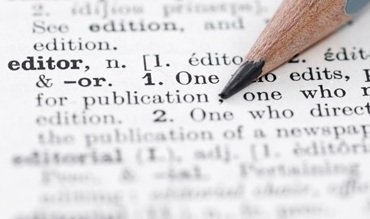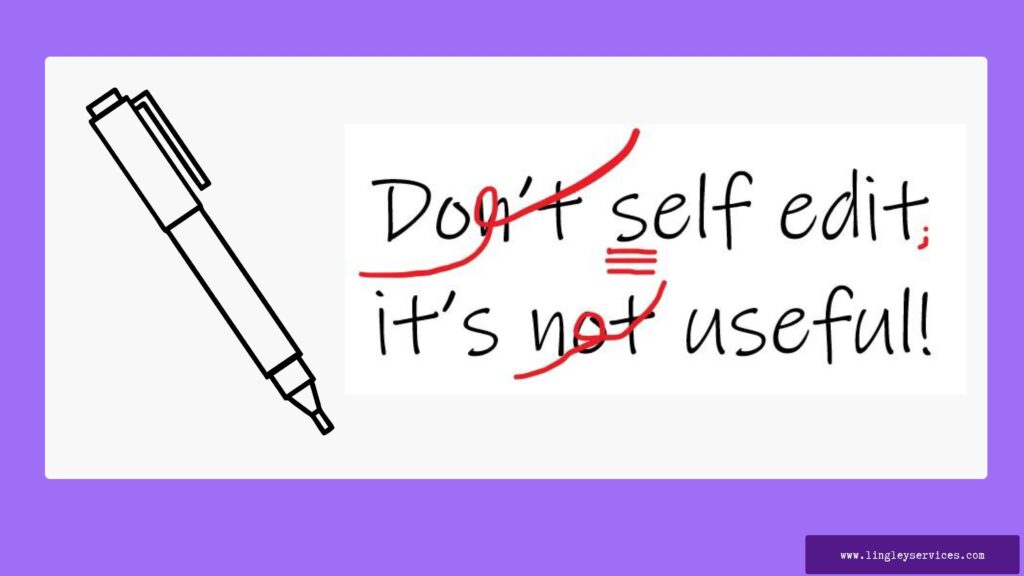Learn Self-Editing in 3 Powerful Steps
Self-editing can increase your productivity
Self-editing is a skill that all writers should develop sooner rather than later. This is because the more you self-edit, the less time your editor has to spend on pointing out mindless errors.

Additionally, self-editing allows your editor to spend more time focusing on the flow and conciseness of your content.
While it may sound cumbersome or even overwhelming, the skill of self-editing is not hard. And it’s a skill you can easily start practicing today! After all, don’t you want your next writing project to be as tight as possible before submitting it for a professional edit?
As a writer, I have slapped my forehead many times after receiving a document back from my editor. After all, it’s a bit embarrassing to find your document peppered with corrections of lazy misspellings, rambling sentences, and even typos.
As an editor, I have spent unreasonable amounts of time notating sloppy errors when reviewing documents for clients. In the end, this costs them more money. To preemptively manage this, self-editing is one of the ultimate keys to writing more efficiently.
Below I have outlined 3 simple yet powerful ways to help you get started:
Reread.
Sometimes when you write, the words just start flowing. Naturally, your mind fills in the blanks because you know what you’re trying to say. But rarely does leaving it alone once you spit it all out onto the page ever work well.
Self-editing in the form of rereading allows you to easily find missing content, expand on vague concepts, and clarify confusing ideas. Rereading your work out loud can be beneficial in determining how your words sound and whether or not they are coherent.
Rework.
Self-editing in the form of reworking tough-to-read portions can save both you and your editor time and money.
Completing Step 2 as you complete Step 1 streamlines the process of polishing your writing. Simply put, reworking as you reread makes self-editing hassle-free.
Restructure.
The more you engage in rereading and reworking, the restructuring aspect naturally falls into place. Your thought processes will change over time as you teach yourself to write more efficiently, concisely, and attentively. You will become a better writer as a result and your editor (and wallet) will thank you.
The practice of self-editing is taking the time to review your work and polish it as needed. It means working consciously to make your writing as tight and concise as possible. It gives you confidence before sending it out for professional edit or posting it to your audience.
Self-editing allows you to improve your ability to self-check as you write. It also helps you write in a more constructive way. Finally, it enables you to present your editor or audience with a piece that is as close to top-notch as you are able to get it.
As writers, we are too close to anything we write to catch everything. Self-editing helps us all save energy, brainpower, time, and money.

Need help getting started? Please visit www.lingleyservices.com/services to learn more and contact me at [email protected] with any questions.
As a fellow writer, I have most likely experienced your struggles and can provide support and guidance. I’m here to celebrate and assist you as you seek to make your literary inspirations a reality.